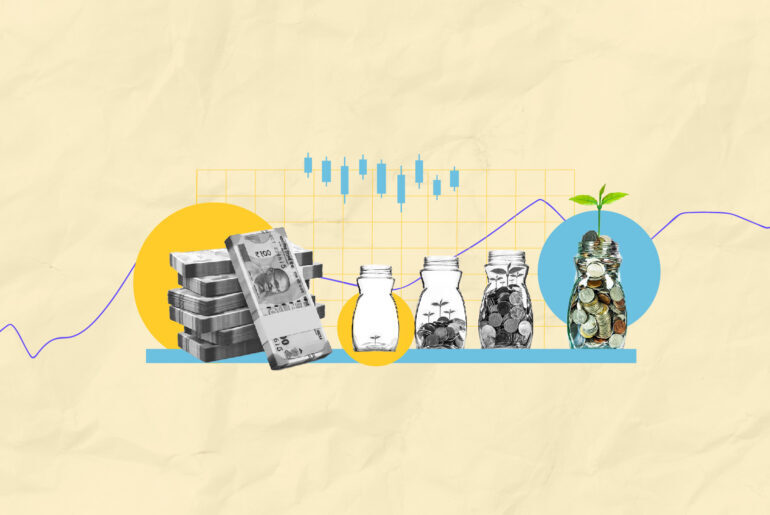Last Updated on May 25, 2022 by Neera Bhardwaj
A dividend is the company’s reward to its shareholders for entrusting the company with their money. A dividend is paid when the company decides not to reinvest the profits earned during the year and instead distribute it among the shareholders. However, there is no compulsion or a fixed time when companies pay dividends, which makes the timing of buying and holding the stocks a lot more critical. The last thing an investor would want is to miss out on a handsome dividend payout just because they were not aware of the dividend dates.
Table of Contents
What are dividend dates?
Many listed companies regularly distribute dividends to their shareholders. Such stocks are commonly called dividend stocks. Investors typically keep their peripheral vision on such dividend-paying stocks and would want to be in possession of such stocks when the dividend is announced.
To be able to successfully collect dividends, one must understand the different dividend dates associated with the process of disbursement of dividends. The words ex-dividend, dividend record date, book closure start date may sound similar, but they carry a special significance during dividend payouts.
Dividend dates you should know
There are four dividend dates that you as an investor should know:
Dividend declaration date
It’s the date when the company’s board of directors approves the proposal of payment of dividend. On this date, the board decides to pay its shareholders dividends. On the dividend declaration date, the rate of dividend and record date is also decided.
Ex-dividend date
Even though the company declares the dividend, the ex-dividend date is decided by the stock exchanges, that is, NSE and BSE. It is also the first day the stock trades without a dividend. This data is crucial to determine how dividends would be distributed. The ex-dividend date is observed three days ahead of the record date. Therefore, all the purchases of shares of the dividend-declaring company on or after the ex-dividend date will not be considered for paying dividends until its record date.
For example, GEC Ltd declared a dividend of 20%, having a record date of 10th July 2021 and an ex-dividend date of 7th July 2021.
Let us then consider the case of three investors:
Ms A bought the shares of the company on 5th July 2021,
Mr B sold the shares on 8th July 2021, and
Mr C bought the shares on 8th July 2021.
Here, Ms A, who bought the shares on 5th July 2021, which is ahead of the ex-dividend date, is eligible for receiving dividends in proportion to her holdings. She would not have been eligible for the dividend if she had purchased the shares on or after 7th July 2021.
Mr B, who sold the shares on 8th July 2021, would still receive the dividend. Why? Because shareholders are allowed to sell their shares on or after the ex-dividend date and still be eligible to get the dividend since they did have the stock in their portfolio on the ex-dividend date.
Mr C, who bought the shares on 8th July 2021, will miss out on the dividend even though he bought the shares before the record date as he bought the shares after the ex-dividend date.
Record date
If one’s name is in the company’s shareholders list on the record date, then he is eligible for the dividend. The record date is often confused with the ex-dividend date. The record date is the dividend date and is declared by the company itself, not the stock exchange as with the ex-dividend date. It is crucial to understand that all the trades on stock exchanges are not settled immediately. This is the reason why companies declare a record date after the ex-dividend date.
Dividend payment date
On this date, the dividend amount is credited to the eligible shareholders’ bank accounts or a cheque is issued where the demat account is not updated with the bank details.
Example to understand all the dividend dates at once
Recently, Computer Age Management Services (CAMS) declared a final dividend of Rs 11.84. Following are the dividend dates:
Declaration date: May 25th
The company passed the resolution in its board meeting to pay a final dividend of Rs 11.84.
Ex-dividend date: July 26th
Post this date, the company did not consider the buyers of shares of the company for the payment of dividends.
Record date: July 29th
The company paid the dividend to those having their names in the shareholder’s list on this date.
Payment date: Sep 20th
This is the date on which CAMS made payment to the eligible shareholders.
Dividends are one of the sources of income from equity investments apart from capital gains. If you invested in dividend stocks, it is important to track company activities more in the context of dividend dates – the ex-dividend date and other important announcements.
- How To Declare Mutual Funds in ITR & Disclose Capital Gains in India? - Jun 6, 2025
- How To Sell or Exit Your Mutual Funds in India? - Jun 6, 2025
- Fund of Funds (FOF): Meaning, Types & Advantages - May 13, 2025





